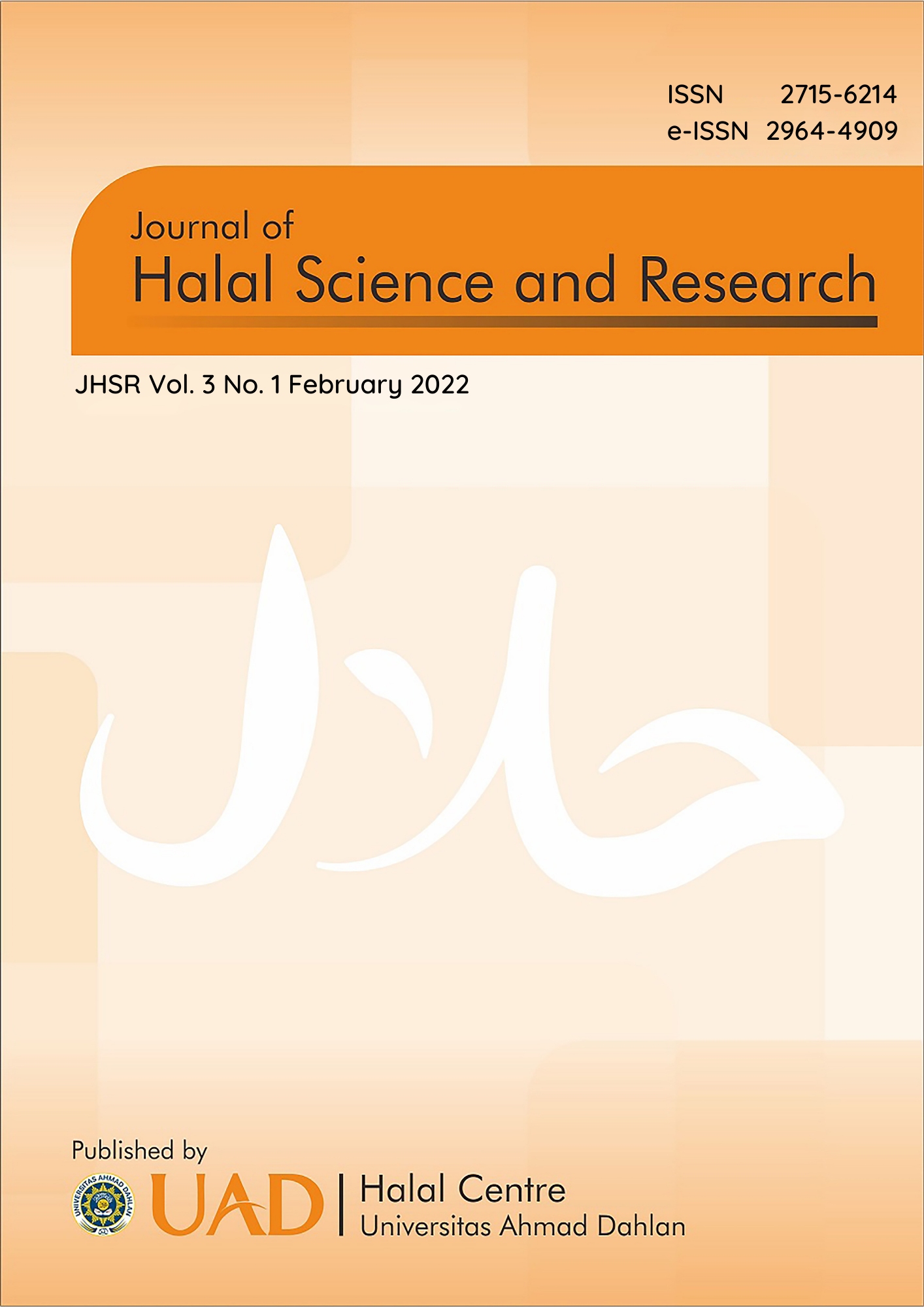Evaluation of the application of the principles of industrial sanitation and employee hygiene
DOI:
https://doi.org/10.12928/jhsr.v3i1.6817Abstract
The food industry is an industry that processes agricultural products into products, all of which are ready for consumption by a community. Therefore, the food industry is more involved in the downstream part of making these products. The primary function of the food industry is to save, disseminate, and increase the added value of agricultural products effectively and efficiently. Sanitation is an effort that monitors several environmental factors that affect humans and significantly impact the effect, damage to physical development, health, and survival in life, or efforts to maintain food, workplace, or free from pollution caused by bacteria, insects, or other animals. This study aims to analyze industrial sanitation and employee hygiene based on the reference in a Regulation of the Minister of Industry of the Republic of Indonesia No. 75/M-IND/PER/7/2010 concerning Good Processed Food Production Methods. The analytical method uses a check sheet, descriptive statistical analysis, and fishbone diagrams. The results of the analysis showed that the application of industrial sanitation and employee hygiene at Sweet Sundae was good, with the percentage of application is 85% being implemented and 15% not being implemented.
Downloads
Published
Issue
Section
License
Copyright (c) 2022 Universitas Ahmad Dahlan

This work is licensed under a Creative Commons Attribution-NonCommercial-ShareAlike 4.0 International License.
Authors who publish with JHSR (Journal of Halal Science and Research) agree to the following terms:
1. Authors retain the copyright and grant Universitas Ahmad Dahlan right of first publication with the work simultaneously licensed under a Creative Commons Attribution-NonCommercial-ShareAlike 4.0 License (CC BY-NC-SA 4.0) that allows others to share (copy and redistribute the material in any medium or format) and adapt (remix, transform, and build upon the material) the work for any purpose, even commercially with an acknowledgement of the work's authorship and initial publication in Universitas Ahmad Dahlan.
2. Authors are able to enter into separate, additional contractual arrangements for the non-exclusive distribution of the journal's published version of the work (e.g., post it to an institutional repository or publish it in a book), with an acknowledgement of its initial publication in Universitas Ahmad Dahlan.
3. Authors are permitted and encouraged to post their work online (e.g., in institutional repositories or on their website) prior to and during the submission process, as it can lead to productive exchanges, as well as earlier and greater citation of published work (See The Effect of Open Access).

This work is licensed under a Creative Commons Attribution-NonCommercial-ShareAlike 4.0 International License.




